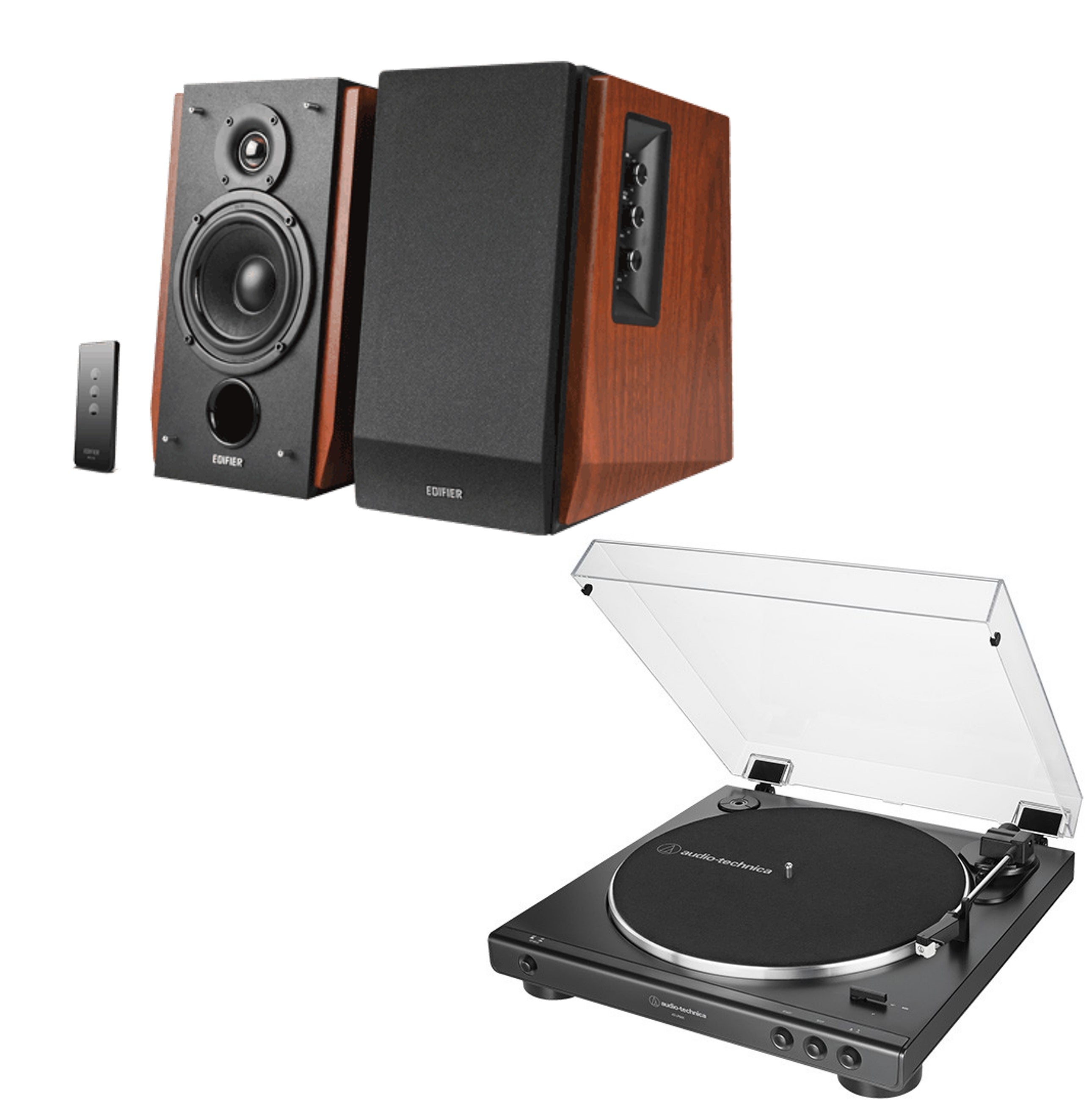
Vinyl, Cassette and CD — What Are the Differences in Quality?
Vinyl vs CD vs Cassette — What Are the Differences in Quality?
The Battle of Analog vs. Digital Sound
Music has changed a lot over the years, but one debate never seems to go away: Vinyl vs CD vs Cassette—which one sounds better? The rich, warm tones of analog formats like vinyl and cassettes, or the crisp, clean precision of CDs? If you're wondering which one truly delivers the best listening experience, you're in the right place. Let's break it all down!
Vinyl Records: The Classic Warmth of Analog
How Vinyl Stores Sound in Grooves
Vinyl records capture sound the old-school way—through tiny grooves that physically store the audio waveform. When the needle moves through these grooves, it vibrates and translates the movement into sound. It’s a purely analog process, meaning the music you hear is a direct physical reproduction of the original recording. No digital conversion, no numbers, just sound waves in their natural form. This is why Vinyl vs CD vs Cassette discussions often highlight vinyl as the most “authentic” format.
The Signature Warmth: Why Vinyl Sounds Richer
Vinyl has a warmth that digital formats just can’t seem to replicate. The analog nature of the sound waves preserves all the tiny nuances, from the deep bass to the shimmering highs, in a way that feels full and organic. Unlike digital audio, which breaks sound into tiny pieces, vinyl plays everything as one continuous wave. That’s why so many people say vinyl just sounds “real.” When comparing Vinyl vs CD vs Cassette, this warmth often makes vinyl the favorite for audiophiles.
Surface Noise and Crackle: A Feature or a Flaw?
That signature crackle you hear when you drop the needle? Some call it nostalgic, others call it annoying. Vinyl is a physical medium, so dust, scratches, and imperfections will always be part of the experience. But for many, those little pops and hisses add character, making each record feel like a living, breathing part of music history. This is something you won’t find in CDs when comparing Vinyl vs CD vs Cassette.
Analog Purity: Why Audiophiles Love Vinyl
Vinyl has no digital conversion—what you hear is exactly what was recorded, in its purest, most unfiltered form. No compression, no missing details. Just the artist’s work, as close to the original studio recording as possible. That’s why audiophiles swear by vinyl as the best way to experience music. In the Vinyl vs CD vs Cassette debate, vinyl wins for those seeking the most authentic analog experience.
The Role of Turntables: Does Your Setup Matter?
Absolutely! A high-quality turntable, cartridge, and speakers can make all the difference. A cheap setup might leave you with weak bass or excessive surface noise, while a well-maintained system can bring out the full depth of your records. If you’re serious about vinyl, investing in good gear is key. A good setup is essential when considering Vinyl vs CD vs Cassette in terms of sound quality.
Cassette Tapes: The Nostalgic and Portable Choice
How Magnetic Tape Captures Audio
Cassettes store sound using magnetic tape, which captures an analog audio signal in a compact, portable format. The tape moves past a playback head, and as it does, it translates magnetic signals into sound. It’s simple, effective, and incredibly nostalgic. But when looking at Vinyl vs CD vs Cassette, cassettes are often considered the lowest in fidelity.
The Lo-Fi Charm: Why Some Prefer Cassette Sound
Cassette tapes don’t have the pristine clarity of CDs or the rich depth of vinyl, but that’s part of their appeal. The slight warble, the soft hiss, the warmth of the magnetic tape—it all adds up to a unique sonic experience. It’s lo-fi, it’s imperfect, and for many, it’s beautiful. Vinyl vs CD vs Cassette fans often argue that while cassettes lack quality, they make up for it in character.
Tape Hiss and Wow & Flutter: Quirks of the Format
Cassettes come with their own quirks. Tape hiss is a soft background noise caused by the magnetic tape itself, while wow and flutter refer to slight speed variations that can make music sound wobbly. High-end tape decks can minimize these effects, but they’re part of what gives cassettes their distinct character. Among Vinyl vs CD vs Cassette, this is one of the biggest drawbacks of cassettes.
CDs: The Digital Revolution in Sound
How CDs Use Digital Data to Reproduce Music
CDs store sound as digital data—tiny bits of information that a laser reads and translates back into music. Because of this digital process, CDs offer clean, precise sound with virtually no distortion. No grooves, no tape, just ones and zeros. This gives CDs a distinct advantage in the Vinyl vs CD vs Cassette battle when it comes to clarity.
The Crystal-Clear Sound of 16-bit Digital Audio
CDs have an extremely accurate 16-bit, 44.1kHz sampling rate, meaning they can capture a broad frequency range with near-perfect clarity. This results in crisp highs, deep lows, and a dynamic range that surpasses both vinyl and cassette. If you’re looking at Vinyl vs CD vs Cassette in terms of precision, CDs take the crown.
The Future of Music Formats: Where Are We Headed?
The world of music formats is constantly evolving. High-resolution streaming, lossless digital downloads, and the surprising resurgence of vinyl have all kept the debate alive. While digital formats focus on convenience and pristine quality, analog formats like vinyl and cassette offer a tactile, nostalgic experience that no digital file can replicate. Whether you love the warmth of vinyl, the charm of cassettes, or the precision of CDs, one thing is for sure: the Vinyl vs CD vs Cassette debate will never die.
No matter which format you prefer, each one tells a unique story. Vinyl gives you warmth and nostalgia, cassettes bring a fun, lo-fi vibe, and CDs offer crystal-clear perfection. Why choose just one? Mix it up, explore different sounds, and enjoy music in all its forms!

































